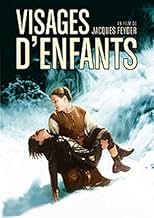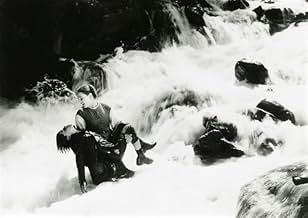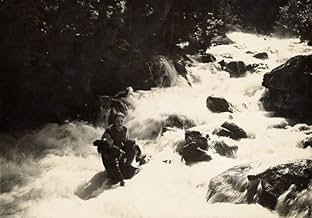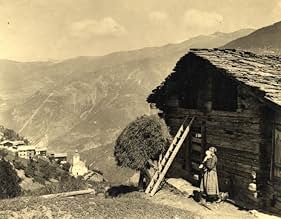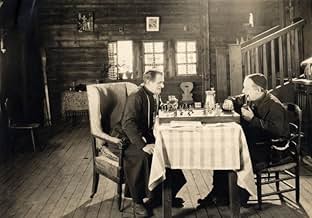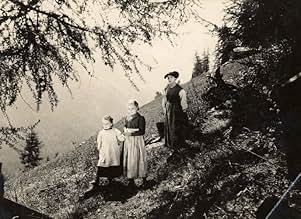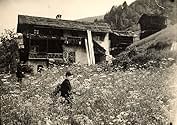Füge eine Handlung in deiner Sprache hinzuA man whose wife has died remarries, and his new wife has a daughter of her own from a previous marriage. The man's young son, however, who loved his mother deeply and misses her terribly, r... Alles lesenA man whose wife has died remarries, and his new wife has a daughter of her own from a previous marriage. The man's young son, however, who loved his mother deeply and misses her terribly, resents his father's new wife, not wanting her to take the place of his beloved mother, and... Alles lesenA man whose wife has died remarries, and his new wife has a daughter of her own from a previous marriage. The man's young son, however, who loved his mother deeply and misses her terribly, resents his father's new wife, not wanting her to take the place of his beloved mother, and makes life miserable for his new stepsister..
- Regie
- Drehbuch
- Hauptbesetzung
Empfohlene Bewertungen
The film begins with a funeral. The Mayor's wife has just died--leaving him and his two children behind. After trying to make a go of it, the man realizes he needs a mother for his children and proposes to a local widow--who herself has a young daughter. But, unlike the Brady Bunch, this new blended family did not magically work out--as the parents, in hindsight, did a pretty lousy job of breaking this to the kids--in particular, the 12 year-old boy. It actually came to him as a bit of s surprise--and to make matters worse, they gave his old bedroom to his new step-sister and sister. You could understand how the kid could feel alienated. Over the next few months, the boy (Jean) had a hard time adjusting. Much of his anger was displaced on his step-sister. Ultimately, this resulted in two near-tragedies.
Overall, a very good story that doesn't get too schmaltzy and has a lot of nice action. Well-paced, nice cinematography and very good acting by the children--this one is well worth seeing.
By the way, while it doesn't significantly harm the picture, like many of the silents, a small portion of the film has severely degraded. This is very normal and the damage is minimal but pretty obvious when it occurs. The old nitrate film stock was very unstable and tended to turn to powder, liquefy or even explode!
This all important masterpiece is a must see for all movie buffs.
This excellent silent is almost derailed in the early running. Specifically, it is when young Jean is determined too sensitive to attend his father's second marriage and sent off to live with his godfather (Henri Duval). The kindly priest's mission is to break the news to Jean gently, and return him within a month. It ends with Mr. Duval dropping Jean off some distance from his house; the boy walks home, alone and unannounced. Then Duvall, presumably a close family friend, is not seen again. All in all, this is a strange way for the adults in this drama to treat a child. It illustrates isolation, of course, but could have been left out or done more eloquently...
However, there are no problems understanding this story. In the opening, director Jacques Feyder crushes the screen with the dead mother's coffin, which we see through the eyes of her son. The death of a parent and introduction of a replacement has a profound effect on young Jean. We feel the full weight of that casket. Performers, especially the children, are captured acting naturally. Location photography of the Swiss Alps is beautiful, especially as set up and angled by Mr. Feyder and his crew. The indoor/outdoor sets are terrific, also. And, the ending approaches D.W. Griffith's "Way Down East" (1920) in icy edited excitement.
******** Visages d'enfants (1/24/25) Jacques Feyder ~ Jean Forest, Victor Vina, Rachel Devirys, Henri Duval
Wusstest du schon
- WissenswertesThe film was an artistic success but a terrible commercial failure, causing the bankruptcy of Mundus Film. As for de Zoubaloff, he moved into the radio set selling while Porchet became the technical manager of the Swiss Film Office.
- VerbindungenFeatured in Kino Europa - Die Kunst der bewegten Bilder: The Music of Light (1995)
Top-Auswahl
Details
- Erscheinungsdatum
- Herkunftsländer
- Offizielle Standorte
- Sprachen
- Auch bekannt als
- Nach dem Tode der Mutter
- Drehorte
- Produktionsfirmen
- Weitere beteiligte Unternehmen bei IMDbPro anzeigen
- Laufzeit
- 1 Std. 54 Min.(114 min)
- Farbe
- Sound-Mix
- Seitenverhältnis
- 1.33 : 1

